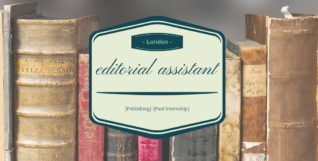
Classic Interview Questions And How To Answer Them
- August 27, 2017
- Michael Lloyd
You’ve landed the interview. You’re on the first step to getting the job. You may be nervous, sitting there, wondering if you’re good enough to get the job.
Stop.
Interviews are all about being confident, communicating well and showing you’re capable of doing a good job. Second-guessing yourself won’t help here. Still, a little preparation never hurt anyone; here’s a guide to the different types of questions you could be asked, and how to answer them.
Openers: ‘”Tell me a bit about yourself.”
This isn’t a chance to tell your life story. It’s an opportunity to walk them through your CV, describing the relevant experience you’ve had.
For example, if it’s a job in marketing, communication is the key skill they’re looking for. So you could say something like: “I’ve had experience in customer service in retail, where I communicated well with customers and colleagues. I’ve also done volunteer work with children, where I had to adjust my communication style to cater to different demographics.”
Competency-based questions: “Tell me about a time you worked effectively under pressure.”
This question is meant to reveal whether you have the skills needed to do the job. Instead of just listing examples, talk through one or two examples in detail, being specific. Structure your answers using the STAR technique.
Situation: set the scene for the interviewer
Task: describe the task you had to complete
Action: explain how you completed the task and what skills you used
Result: tell the interviewer the positive results you achieved and whether you would’ve changed anything.
Motivation questions: “Why do you want the job?”
Don’t say ‘the pay’s great’ or that you’re just looking for your first graduate job. You should give positive reasons for wanting the position and linking it to the company and perhaps the industry too.
For example, for a job in sales you could say something like: “I just enjoy talking to people. I’m after a job where I can be out of an office communicating with people. Also I’d like to work for this company because I know it’s one of the leading businesses in this field and I want to be a part of that. In the job specification it also said that there are opportunities to work your way up in the company; this appeals to me because I’m quite ambitious.”
Fit questions: “What kind of working environment brings out the best in you?”
This is to see whether your personality or your approach to work matches that of the organisation you’re applying for. Never say that you don’t care. Instead say that you’re flexible.
Research the company culture first. For example, the job advert may say they leave early on Fridays or have games in the office and you could say you like the sound of it and think you’d enjoy that. They may ask if the hours are okay – for example, 8am-5:30pm – and there may be work that you have to do at different times such as events or conferences. You should say you’re happy to do say and, if relevant, say if you have experience doing so.
Strength-based questions: “What does a successful work day mean to you?”
This is to provide insight into the potential of candidates. There isn’t a right or a wrong answer. You could say something like you consider a successful day is one where you completed all your tasks and feel pleased with the work you’ve accomplished.
Technical questions: “What would you do about x?”
This is to test your knowledge about a certain subject. During your research, you should learn any relevant technical terms you’d need to work at the company. For example, if it’s a job for a publication reporting on private equity, you should learn a bit about private equity so you’re confident enough you can describe it.
There may be questions about topics about subjects you don’t know much about. Say that you’re always willing to learn. You could perhaps say you have a lot of knowledge in a similar subject – for example: “I don’t have experience using html coding but I’m always willing to learn and I have lots of experience using CMS systems.”
Curveball questions: “If you could have any superpower, what would it be?”
These are more unusual questions.
Try to be creative. Taking a few seconds to think of an answer is fine. You could even fit it in with the job. For example, for a job as a doctor, you could say a superpower like super-speed, so you would be faster and be able to help more people.
Your questions for them
This is to see if you’re prepared and have questions to ask. During your research you might have more things you want to know that you couldn’t find out yet. For example, for an interview at a newspaper or magazine, you could ask what their online strategy is and whether they publish all of their print stories online afterwards.
You could also ask if there are opportunities for progression at the company. You can also ask when to expect them to get back to you.
Now you have an idea of the types of questions you can be asked and how to answer them, all you need to do is get researching. Once you’re prepared, you can be confident talking about the company and answering their queries. Good luck!
Inspiring Interns is a graduate recruitment agency. To browse graduate jobs, visit their site.







